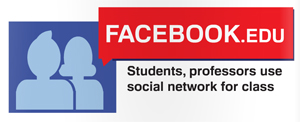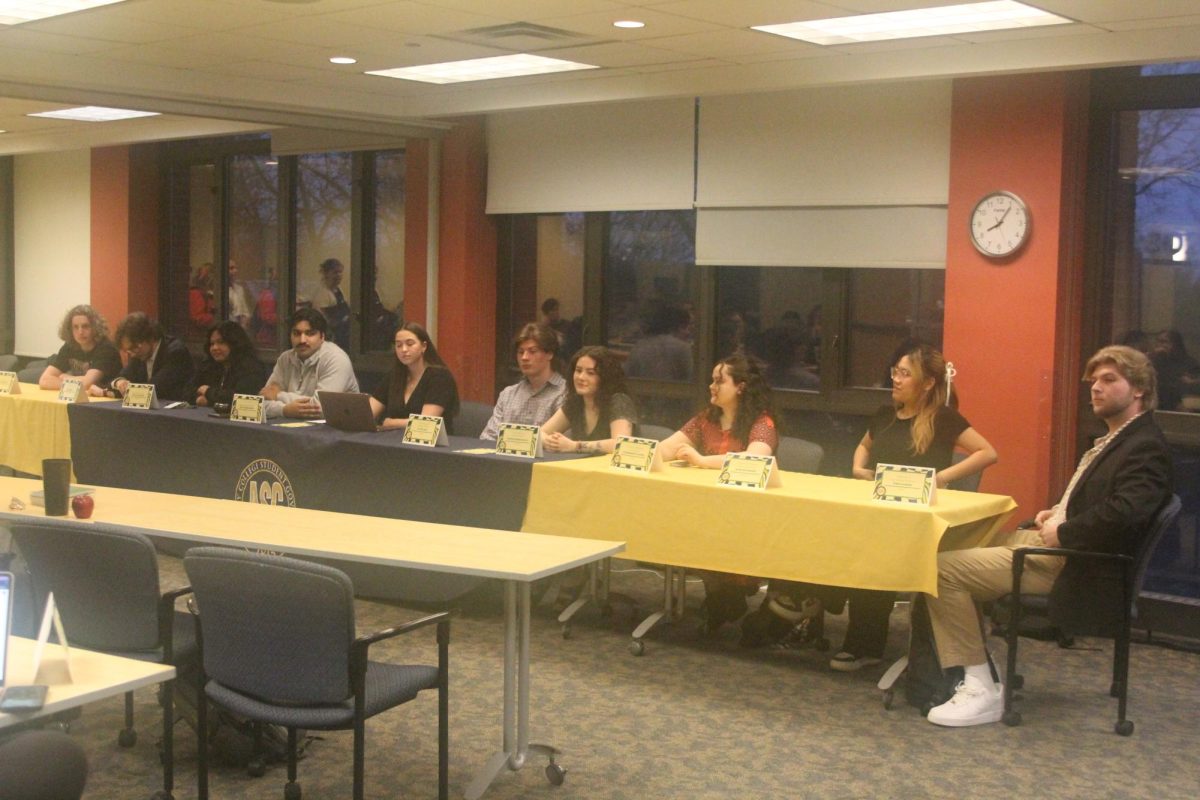By RACHEL GIESEL
Staff Writer
[email protected]
 Although Facebook is most frequently used as a personal tool for social interaction, it is starting to be more frequently integrated into the academic environment, according to a survey conducted by the Educause Center for Applied Research earlier this year.
Although Facebook is most frequently used as a personal tool for social interaction, it is starting to be more frequently integrated into the academic environment, according to a survey conducted by the Educause Center for Applied Research earlier this year.
At Allegheny, professors have begun looking more closely into incorporating Facebook into their course curricula.
“[Facebook is] a way to create community in a classroom that might lead to more enhanced conversations with people when they’re there because they feel like friends that you’re going to talk to, rather than other students you don’t really know and you’re afraid to say something [to],” said Aimee Knupsky, assistant professor of psychology. “That might help build community, which would then build participation more.”
At present, most professors rely on e-mail and blogging more heavily than Facebook for technology-based teaching, Knupsky said. Facebook, she believes, could provide an interesting alternative to the technology professors already use.
Some professors have already incorporated Facebook use into their courses. Darren Miller, assistant professor of art, assigned a project to his photography students last spring, asking them to present their pictures to the class via a Facebook group and then comment on each photograph.
Miller said he decided to use Facebook as the outlet for this project because he thought of it as a way to connect with students. However, he encountered some resistance to the assignment when students expressed confusion or demonstrated a lack of effort.
“My opinion is that students really enjoy this kind of social networking until it becomes something that’s required,” Miller said. “I don’t want to sound like I’m dismissing student criticism of the project, the assignment, the prompt, ‘cause I think there are a number of things that could be improved. But I do think that students didn’t like it because it was homework.”
Sophomore Paige Missel, a student in Miller’s class last semester, said she enjoyed using Facebook to give and receive critique for the assignment.
“It was really good to get feedback,” Missel said. “It was a quick way to get it. Because a lot of times in class it’s hard to get your voice heard because there are people around, [but] with Facebook you could be frank.”
Miller said the language students used in their criticisms on the photographs surprised him because of their lack of formality.
“Students had more of a tendency to use chat speak,” Miller said. “And I didn’t penalize them at all for that because I didn’t specify they shouldn’t. But it surprised me because I wasn’t expecting people to write ‘ppl,’ ‘lol,’ and put smiley faces. But they did. And I think that’s because it was Facebook.”
Another student in Miller’s class, senior Janna Dickerson, said she also noticed the casual conversation that appeared in the comments of the pictures.
“It wasn’t so much of the art speak usually you give in critique,” Dickerson said. “I tried to keep up as much of a normal critique language that I usually would use but, I don’t know, I feel like most of the people, and myself included probably, toned stuff down a little bit when we were commenting.”
In the study, a quarter of college students said that Facebook was a “valuable” or “extremely valuable” variable of their academic achievement. Eleven percent of the students reported that they wished professors would integrate social networking sites into classrooms more often.
Dickerson said that overall, while she felt Facebook might work effectively in some ways, she wouldn’t want the Web site to be something that carried a lot of weight in the classroom.
“It worked well for this assignment, I thought, to get stuff going,” Dickerson said. “And if it’s used just in that manner, to get people started thinking about stuff, making it easy to look at images and to have a discussion going in the background … I think that’s a good way to incorporate it, but I wouldn’t like to see it incorporated any more than that.”
Missel said she thinks Facebook would be a useful tool for class. Although professors’ reactions to usage may vary, she said it could generate discussion and a greater understanding of in-class topics.
“I think it would be a great tool because people are on Facebook procrastinating anyway,” Missel said. “So why not have them learning something while they’re there?”
Miller said he will attempt to use Facebook as a class resource once again in the spring before he decides whether he thinks it is effective or not.
“For me, the way that I would measure benefit is: is there an ease of use, and am I meeting students in a place where they’re already comfortable?” Miller said. “I use tools when they’re convenient, when they’re useful and when I can see that they’re doing good work for me.”






